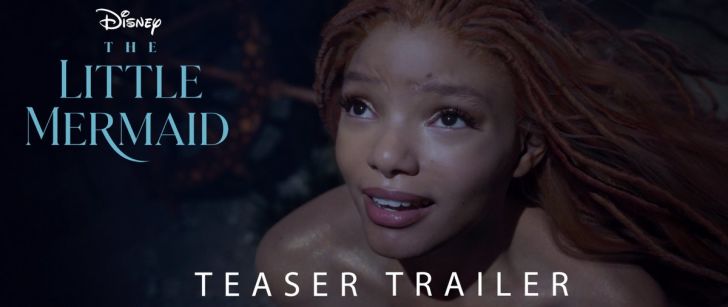The hashtag #NotMyAriel was trending again the other day. It was trending in response, it seems, to the recently released trailer of Disney’s The Little Mermaid reboot, featuring Halle Bailey singing the iconic “Part of Your World.” Her locs are the same shocking ginger that’s become synonymous with the character Ariel, thanks to the 1989 animated film. Her expression is hopeful, her eyes uncannily big and round like so many Disney princesses before her. But when she sings, “Out to the see/Wish I could be/Part of that world,” the distinctness, the newness, the Blackness of her interpretation cannot be denied.
As suspicious as I am of all Disney output this day, I cannot deny, I was moved watching the clip for the first time.

But then there’s the hashtag. A different kind of movement, an opposing movement. Disgruntled “fans” who feel compelled to lament the so-called woke-ification of Hollywood, who write long Twitter threads and angry YouTube comments explaining why Ariel, who of course is white (right?) should never be played by a Black girl. There is no such thing as a Black mermaid, after all. Right?
I tire of the white supremacist imagination.
All this backlash is part of a running theme against the so-called “woke” agenda in popular film, television, and literature. This use of the word “woke” in particular comes up again and again as a tool to dismiss casting that subverts long held expectations of what kind of characters get to occupy the realms of fantasy, sci-fi, and other genre films and TV shows. “Woke” is a word that used to mean something but now, of course, has been rendered absolutely meaningless thanks to the white propensity for decontextualizing and coopting language and concepts that originate in the Black imagination. A tactic.
Now, it is “woke” to cast Dewanda Wise, a Black woman, as a supporting character in the latest Jurassic World movie, a film still largely dominated by white leads. It is “woke” to cast Kirby Howell-Baptiste, a Black woman, as Death in the Netflix adaptation of Neil Gaiman’s Sandman (and who cares if Gaiman himself was enthusiastic about the choice). It is “woke” to cast Black people as Elves and dwarves in Rings of Power, or a Black man as Corlys Velaryon on House of Dragons, or — honestly, I could go on and on.
The actual world I think those who wield “woke” like a weapon mean to say is: threatening. It’s threatening to a certain belief system to see these characters. Even in the world of fantasy, the white supremacist imagination is threatened by the existence of the so-called other or, I think, threatened by the idea that it could be the other. The white supremacist imagination is threatened by the reality that it is not the only imagination that exists. It’s all so absurd.




